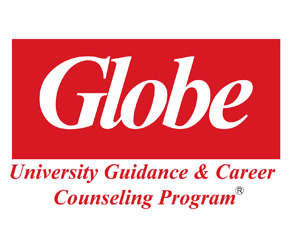Displaying items by tag: Universities In Canada
List Of Universities In Canada
To apply for a study permit on or after June 1, 2014, you will need a letter of acceptance from adesignated learning institution. You need to include the Designated Learning Institution number (DLI #), which is the number that begins with the letter “O”, on your application form.
Study in Canada Requirements
Though admission process and requirements vary from institution to institution in Canada, we will give you information about the most general procedures and requirements to get admission into Canadian Universities and Colleges.
Education System in Canada
Education in Canada is generally divided into primary education, followed by secondary education and post-secondary. It encompasses both publicly-funded and private schools, including: community colleges/ technical institutes, career colleges, language schools, secondary schools, summer camps, universities and university colleges. Education is compulsory up to the age of sixteen in every province in Canada, except for Ontario and New Brunswick, where the compulsory age is eighteen.
In general, Canadian children attend kindergarten for one or two years at the age of four or five on a voluntary basis. All children begin Grade One at about six years of age. The school year normally runs from September through the following June but in some instances, January intake dates are possible. Secondary schools go up to Grades 11 or 12, depending on the province. From there, students may attend university, college or (Cégep) studies.
General Admission Requirements
Though admission process and requirements vary from institution to institution in Canada, here we'll discuss about the most general procedures and requirements to get admission in Canadian Universities or Colleges.
Undergraduate requirements
Undergraduate requirements depend on the type of institution one chooses, this is usually in form of prerequisites and assessments guiding the processes involved in a certain University or College to offer an academic degree, which varies in different ways depending on if the student is a foreigner or a permanent resident.
For admission into undergraduate level, student must have completed twelve years of academic education, but for postgraduate level it is sixteen years. Below you can find undergraduate requirements for most Canadian Tertiary Institutions.
All applicants into undergraduate programs must submit:
- A completed application form;
- An official high school transcript (or attested copy) (if applicable);
- Official transcripts from all post-secondary institutions attended (if any);
- A detailed chronological résumé to demonstrate educational achievements, work experience, progression, community involvement, volunteer experience, and other related experience; and
- A Letter of Intent (LOI) that clearly explains why the applicant is applying and outlines the student’s academic intentions.
Applicants who completed high school or any post-secondary study outside Canada must also submit:
- Documentation confirming their high school completion was awarded, if not already indicated on official transcripts; and
- Proof of English language proficiency.
Finally it is important for you to know that major languages used in Canada are English and French. But most of the universities offer courses in English language. So you need to show your efficiency by means of English Language tests. IELTS is most widely recognized and accepted English proficiency test in Canada, however, some universities and colleges accept TOEFL. The score that you must obtain in these language tests vary from institution to institution and course of study. Some universities even seek for other medium of English language test assessment. For MBA, students may be asked for two years of work experience before being admitted to the university. In most of the cases GMAT is compulsory for MBA students.
Getting Your Study Permit
How to get Visa | Study Permit
We are committed to helping Students get admission into Canadian Universities and Colleges. Although many students desire to study in Canada, they are not equipped with enough information of the requirements, institutions and how to obtain the visa. This is our job and we will guide you all the way. We offer our services to anyone willing to study in Canada from anywhere in the World.
Eligibility for a Canadian Study Permit
To be eligible for a Canadian visa, you must;
- Have been accepted by a school, college, university or other Canadian educational institutions.
- Have to provide proof in the form of bank statements, receipts or certificates that you have enough money to pay for your Tuition and Living expenses.
- Not have a criminal record and are not a security risk.
- Be in good health.
Scholarship in Canada
Scholarship Programs in Canada:
Canada is committed to participation in international study and research partnerships that build understanding among peoples, develop global citizens and leaders, and contribute to the development of nations.
Foreign Affairs and International Trade Canada (DFAIT) is responsible for the Government of Canada's participation in major International Scholarship Programs. DFAITprovides support to international scholars in Canada, which is often reciprocated by foreign governments which support Canadian scholars in their countries.
Scholarship packages are available in Canada for International Students but they are only available for students with very high grades. There might be no 100% Scholarship packages available for International students, but you can sometimes save some few thousands of dollars.
List Of Universities In Canada
Alberta
Concordia University of Edmonton
British Columbia
Emily Carr University of Art + Design
Kwantlen Polytechnic University
The University of British Columbia
University of Northern British Columbia
University of the Fraser Valley
Manitoba
New Brunswick
Nova Scotia
Mount Saint Vincent University
Nova Scotia College of Art and Design (NCSAD University)
Newfoundland & Labrador
Memorial University of Newfoundland
Ontario
Dominican College of Philosophy and Theology (Dominican University College)
King’s University College (King’s University College at Western University)
Laurentian University of Sudbury
Royal Military College of Canada
University of Ontario Institute of Technology
University of St. Michael’s College
Prince Edward Island
University of Prince Edward Island
Québec
École de technologie supérieure
École des Hautes Études Commerciales de Montréal (HEC Montréal)
École nationale d’administration publique
École Polytechnique de Montréal
Institut national de la recherche scientifique
Université du Québec à Chicoutimi
Université du Québec à Montréal
Université du Québec à Rimouski
Université du Québec à Trois-Rivières
Université du Québec en Abitibi-Témiscamingue
Université du Québec en Outaouais
Saskatchewan






















